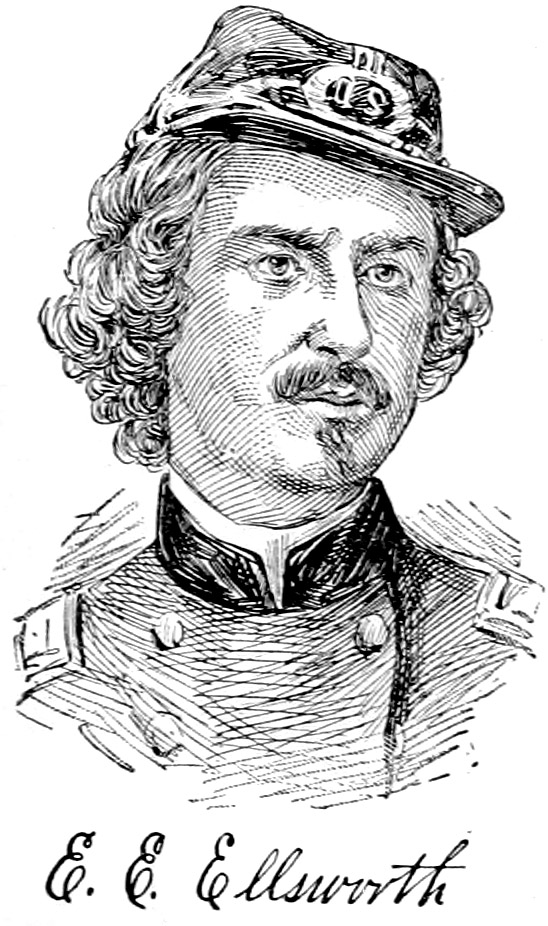Ephraim Elmer Ellsworth

from The Biographical Dictionary of America, 1906, by Rossiter Johnson.
ELLSWORTH, Ephraim Elmer, soldier, was born in Saratoga county, N.Y., April 23, 1837. He attended the public schools of Mechanicsville, N. Y., and when a mere lad went to New York city and thence to Chicago, where in 1859, he was a lawyer's clerk and student, receiving a salary hardly sufficient to supply him with food, while sleeping on the floor of the office. At this time he took command of a company of cadets which was about to fall to pieces from neglect and inattention, and brought it to a high standard of discipline. He soon attracted the attention of the citizens of Chicago to the cadet zouaves and had immense crowds at every public drill. He made a tour of the United States with the company and gave competitive drills with both regular and militia companies in several cities. On his return to Illinois in 1860 he met Abraham Lincoln and entered his law office at Springfield as a law student, but devoted his time principally to the Presidential campaign of that year. After the election of Mr. Lincoln he accompanied the President to Washington and was commissioned a lieutenant in the regular army. He resigned from the army in April, 1861, went to New York city and recruited a regiment from the volunteer firemen, uniformed them after the French zouaves and persistently drilled them in the manual peculiar to his cadet company. He transported his regiment to the national capital early in May, 1861, and effectively used them in putting out a fire in Willard's hotel. On May 23 he was assigned to the occupation of Alexandria, on the extreme left of the Union lines advancing into Virginia. He took possession of the telegraph office, and seeing a Confederate flag floating from the flagstaff of the Marshall house, he, accompanied by four soldiers and several civilians, mounted the stairs, gained the roof and with his own hands tore down the flag. Bearing it in his arms he descended from the roof. On the stairs he was met by the proprietor of the hotel, who shot him dead. A private of his command, Frank E. Brownell, at the same moment killed the assassin. Colonel Ellsworth was buried from the East room of the White House by special order of the President who mourned him as a son. He died at Alexandria, Va., May 24, 1861.